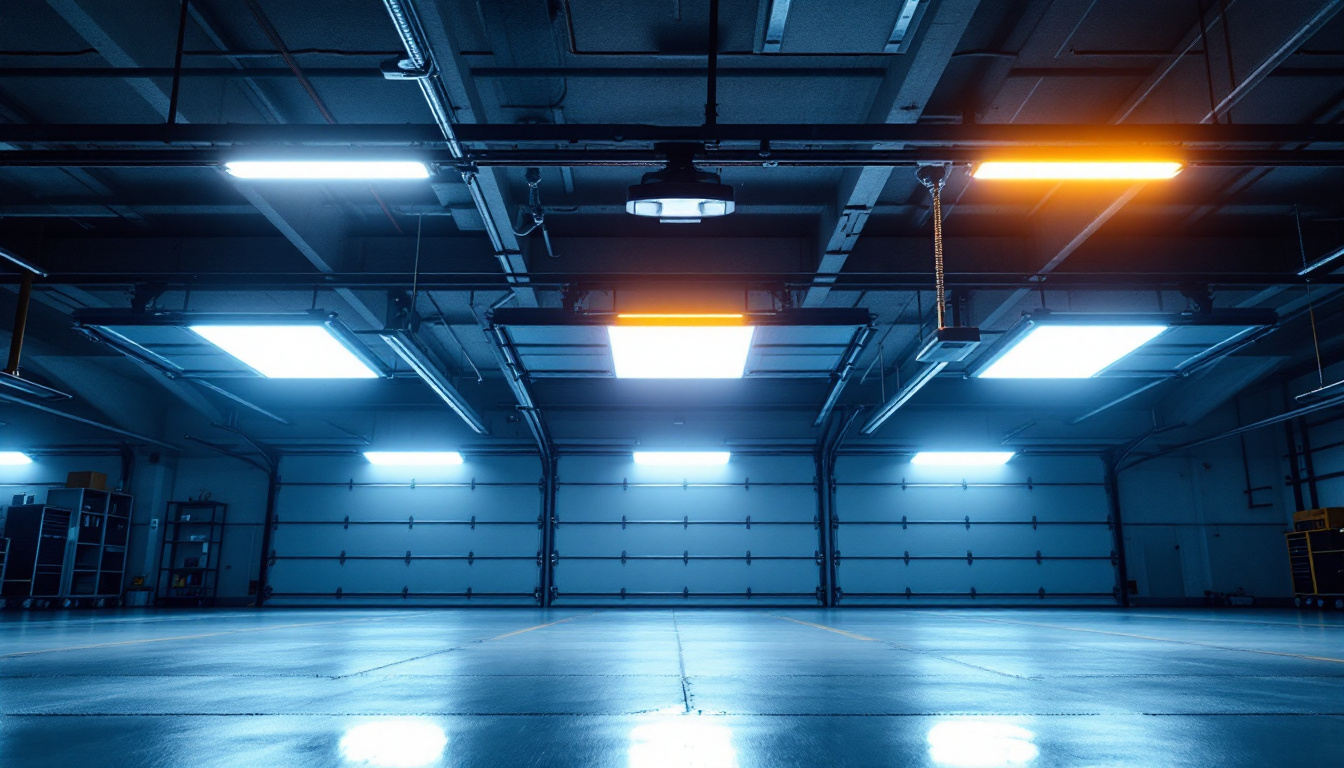
As the demand for sustainable and energy-efficient lighting solutions continues to rise, solar sconce lights have emerged as a popular choice for both residential and commercial applications. These fixtures not only enhance the aesthetic appeal of outdoor spaces but also contribute to reducing energy consumption. However, lighting contractors must navigate several challenges to ensure successful installations. This article explores key considerations and practical tips for contractors to avoid common issues associated with solar sconce lights.
Solar sconce lights are outdoor lighting fixtures that harness solar energy to illuminate spaces. They typically consist of a solar panel, LED bulbs, and a rechargeable battery. During the day, the solar panel absorbs sunlight and converts it into electricity, which is stored in the battery for use at night. This technology offers a range of benefits, including cost savings and environmental sustainability. With advancements in solar technology, many modern sconce lights are designed to be more efficient, allowing them to operate longer and brighter, even in less-than-ideal sunlight conditions.
One of the primary advantages of solar sconce lights is their energy efficiency. By relying on renewable energy, these fixtures reduce reliance on traditional power sources, resulting in lower electricity bills for homeowners and businesses. Additionally, solar sconce lights are often easier to install than wired fixtures, eliminating the need for extensive electrical work. This ease of installation not only saves time but also reduces labor costs, making them an attractive option for budget-conscious consumers.
Moreover, solar sconce lights contribute to safety and security by illuminating pathways, driveways, and entryways. This added visibility can deter potential intruders and enhance the overall safety of outdoor spaces. With various designs available, contractors can also offer clients a wide range of aesthetic options to complement their property. From sleek modern designs to more traditional styles, these lights can enhance the architectural features of a home while providing practical lighting solutions. Additionally, many solar sconce lights come equipped with motion sensors, which can further increase security by activating the light when movement is detected, providing an extra layer of protection for homeowners.
Despite their benefits, solar sconce lights present unique challenges during installation. Understanding these challenges is crucial for lighting contractors to ensure a smooth installation process and avoid potential issues. Common problems include inadequate sunlight exposure, battery performance, and fixture placement. For instance, if a solar sconce light is installed in a shaded area, it may not receive enough sunlight to charge the battery effectively, leading to diminished performance at night.
Furthermore, the quality of the battery can significantly impact the functionality of solar sconce lights. Some lower-quality batteries may not hold a charge well, resulting in shorter operational times. Therefore, it’s essential for contractors to choose high-quality products that are designed for longevity and efficiency. Additionally, proper fixture placement is crucial; lights should be positioned at heights and angles that maximize sunlight exposure while ensuring optimal illumination of the intended area. By addressing these challenges, contractors can provide clients with reliable and effective solar lighting solutions that enhance both safety and aesthetic appeal.
To effectively install solar sconce lights, contractors must consider several factors that can impact performance and longevity. Addressing these considerations upfront can help mitigate potential issues down the line.
Before installation, a thorough site assessment is essential. Contractors should evaluate the location to determine the amount of sunlight exposure the solar panels will receive throughout the day. Areas shaded by trees, buildings, or other structures can significantly reduce the efficiency of solar lights.
In addition to sunlight exposure, contractors should also consider the landscape’s topography. Slopes, uneven surfaces, and other geographical features can affect the placement of solar sconce lights and their overall effectiveness. A well-planned site assessment can lead to optimal placement, ensuring that the lights function as intended.
Not all solar sconce lights are created equal. Lighting contractors should carefully select high-quality products that meet their clients’ needs. Factors to consider include the brightness of the LED bulbs, the capacity of the battery, and the durability of the materials used in the fixture.
Contractors should also pay attention to the warranty and customer support offered by manufacturers. A reliable warranty can provide peace of mind for both the contractor and the client, ensuring that any potential issues can be addressed promptly.
Proper installation techniques are crucial for the long-term performance of solar sconce lights. Contractors should follow the manufacturer’s guidelines closely, ensuring that the solar panels are correctly positioned to maximize sunlight exposure. Additionally, securing the fixtures firmly can prevent damage from wind or other environmental factors.
It is also advisable to test the lights after installation to ensure they function correctly. This step can help identify any issues early on, allowing for timely adjustments before the project is completed.
Even with careful planning and execution, lighting contractors may encounter issues during the installation of solar sconce lights. Understanding these common problems and how to avoid them can lead to a more successful project outcome.
One of the most frequent issues with solar sconce lights is inadequate charging. This problem often arises from improper placement of the solar panels. If the panels are not receiving sufficient sunlight, the batteries may not charge adequately, leading to diminished performance.
To avoid this issue, contractors should ensure that the solar panels are installed in locations that receive direct sunlight for the majority of the day. Regularly monitoring the performance of the lights can also help identify any charging issues early on.
Battery failure is another common concern with solar sconce lights. Over time, batteries can degrade, leading to reduced performance or complete failure. This issue can be exacerbated by extreme weather conditions, such as excessive heat or cold.
Contractors can mitigate this risk by selecting high-quality batteries designed for outdoor use. Additionally, educating clients on proper maintenance and replacement schedules can help prolong the life of the solar lights.
Solar sconce lights are often exposed to various weather conditions, which can lead to damage over time. Factors such as rain, snow, and high winds can affect the integrity of the fixtures. To prevent damage, contractors should choose durable materials that can withstand harsh weather conditions.
Furthermore, proper installation techniques, such as securing fixtures firmly and ensuring they are positioned away from potential hazards, can help reduce the risk of damage. Regular maintenance checks can also identify any wear and tear before it becomes a significant issue.
Once the installation is complete, educating clients about the operation and maintenance of solar sconce lights is essential. Providing clear instructions can empower clients to maximize the benefits of their new lighting system.
Clients should be informed about the importance of regular maintenance to ensure the longevity of their solar sconce lights. Simple tasks, such as cleaning the solar panels and checking for debris, can significantly enhance performance. Dust, dirt, and leaves can block sunlight, reducing the efficiency of the solar panels.
Additionally, clients should be made aware of the importance of monitoring battery performance. If lights begin to dim or fail to turn on, it may indicate that the batteries need replacing. Providing a maintenance schedule can help clients stay on track and ensure their solar lights continue to function optimally.
It is crucial for clients to understand the limitations of solar sconce lights. While they offer numerous benefits, factors such as weather conditions and geographic location can impact performance. Educating clients about these limitations can help manage expectations and prevent dissatisfaction.
For example, clients living in areas with long periods of overcast weather may need to consider alternative lighting solutions or supplementary power sources to ensure adequate illumination during the night.
The solar lighting industry is continuously evolving, with new technologies and innovations emerging regularly. Lighting contractors should stay informed about these trends to offer clients the best solutions available.
Recent advancements in solar technology have led to more efficient solar panels and longer-lasting batteries. These improvements can enhance the performance of solar sconce lights, making them a more viable option for a wider range of applications.
Additionally, the integration of smart technology into solar lighting systems is becoming increasingly popular. Features such as motion sensors, remote control, and programmable settings can provide added convenience and energy savings for clients.
As environmental awareness continues to grow, the demand for sustainable lighting solutions is expected to increase. Lighting contractors who embrace solar technology and promote its benefits will be well-positioned to meet this demand.
By offering solar sconce lights as part of their product lineup, contractors can appeal to eco-conscious clients and contribute to a more sustainable future.
Solar sconce lights offer a range of benefits for outdoor lighting, from energy efficiency to enhanced safety. However, lighting contractors must navigate several challenges to ensure successful installations. By understanding the technology, conducting thorough site assessments, choosing quality products, and educating clients, contractors can avoid common issues and deliver exceptional results.
As the industry continues to evolve, staying informed about advancements in solar technology and the growing demand for sustainable solutions will be crucial for lighting contractors. By embracing these changes, contractors can position themselves as leaders in the field and provide clients with innovative and effective lighting solutions.
Ready to elevate your lighting installations with the most efficient and sustainable solar sconce lights? Look no further than LumenWholesale, where we provide lighting contractors with the highest quality, spec-grade lighting products at unbeatable wholesale prices. Our commitment to cutting out the middleman means you get the best value without the inflated markups. With our extensive selection that meets rigorous industry standards, you can trust that your projects will shine with reliability and high performance. Plus, with the convenience of free shipping on bulk orders, you can stock up on premium lighting solutions without worrying about hidden fees or complications. Don’t compromise on quality or cost—choose LumenWholesale for the perfect blend of affordability and excellence. Wholesale Lighting at the Best Value is just a click away.

Explore the essential best practices for high-intensity discharge headlights tailored for lighting contractors.

Discover how LED lighting for garage ceilings is revolutionizing the lighting industry with energy efficiency, durability, and superior illumination.

Discover why staying updated on ceiling room lights is crucial for lighting contractors.

Discover the key factors that distinguish leading lighting contractors in the art of cable pulling.